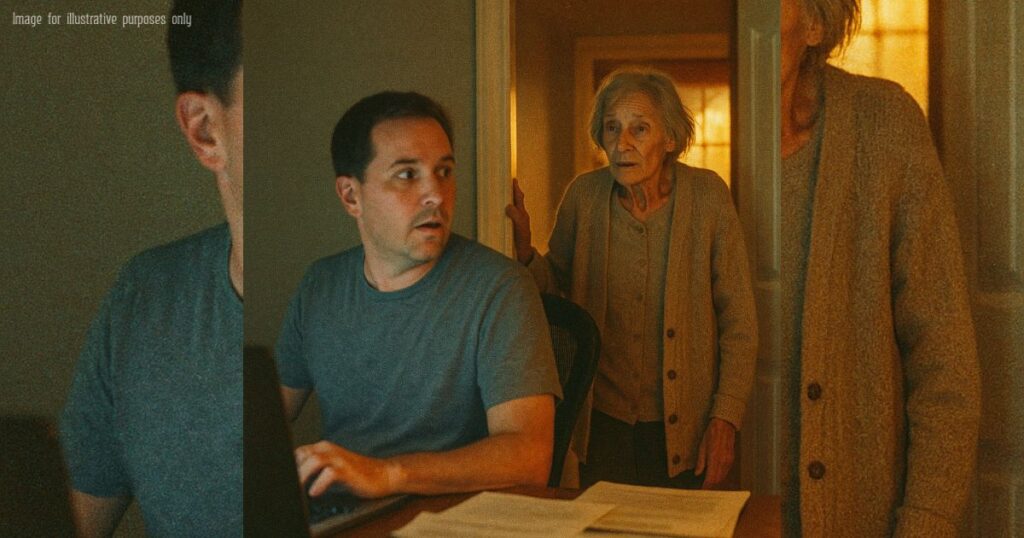She laughed softly. “You were always dramatic,” she said. “But you’re not wrong.”
A week later, the math I had been quietly running in my head decided to show me its variables.
We were halfway through our loop when her steps got uneven. She reached for my arm, missed, and listed sideways toward the curb.
“Mom?” I grabbed her just before she hit the pavement.
Her face went pale, then gray. “I’m just a little dizzy,” she whispered, but her words slurred at the edges.
The world narrowed to a series of sharp, practical tasks.
Call for help.
Keep her talking.
Answer questions.
Sign forms. The ride to the hospital blurred into flashing streetlights and the sound of my own heartbeat pounding in my ears like a distant drum.
They kept her overnight “for observation.” That was the phrase they used, calm and professional. I went home alone, the house too quiet, my office chair empty, the 7:14 PM walk suddenly not a routine but a memory I was terrified might already be over.
I walked the loop by myself that night.
Past the mailbox.
Past the blue house.
Past the teenager’s truck.
The neighborhood looked the same, but the air felt wrong, like a song playing in the wrong key. When I reached the spot where she usually pointed out the moon, I stopped and looked up.
“There you are,” I whispered. “Still showing up whether I deserve it or not.”
The next day, she came home with a new prescription and a list of instructions. She moved a little slower, but her eyes were still sharp, still taking everything in. As we sat on the couch, her cardigan bunched around her shoulders, she patted my knee.
“Listen,” she said. “If you ever decide this is too much, I won’t be angry. You don’t have to ruin your life to prove you love me. But whatever you choose, don’t lie to yourself. Don’t dress it up for the internet. Just be honest.”
I swallowed hard. “I don’t want to ship you off somewhere and visit twice a year,” I said. “I also don’t want to pretend I’m some selfless hero. Maybe the truth is I’m selfish and scared and trying anyway.”
“That,” she said, leaning back with a tired smile, “sounds a lot like love to me.”
The Takeaway:
We like tidy narratives about family. Either the saintly child who sacrifices everything, or the brave survivor who walks away and never looks back. Real life, for most of us, lives in the messy middle, where love and frustration, responsibility and resentment all share the same kitchen table.
You’re allowed to feel tired. You’re allowed to set boundaries.
You’re allowed to admit that caring for an aging parent is both the most human thing you’ve ever done and the hardest. What matters is not the script strangers write for you in comment sections, but the honest choices you make with the people who actually live in your house.
Some families will heal by coming closer.
Others will heal by letting space exist. Only you and your story can decide which is which. But if you’re lucky enough to still have a hand reaching for yours at 7:14 PM, maybe don’t wait for a crisis to decide what you really want to do with it.
Thank you so much for reading this story!
I’d really love to hear your comments and thoughts about this story — your feedback is truly valuable and helps us a lot.
Please leave a comment and share this Facebook post to support the author. Every reaction and review makes a big difference!
This story is a work of fiction created for entertainment and inspirational purposes. While it may draw on real-world themes, all characters, names, and events are imagined. Any resemblance to actual people or situations is purely coincidenta


